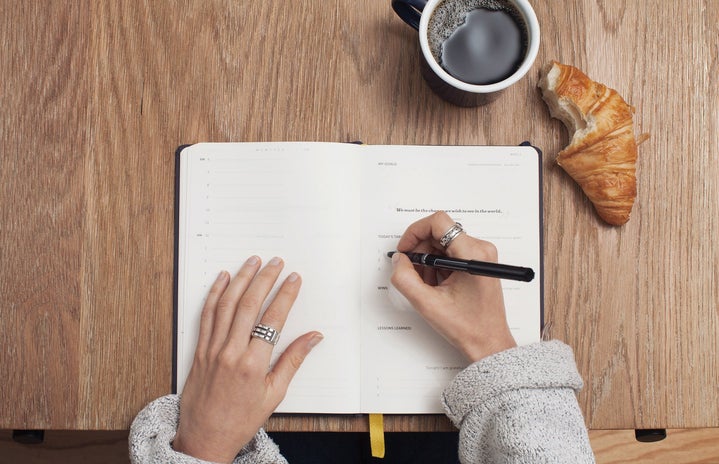For many people creating New Year’s resolutions can be quite a daunting but exciting experience. However, there is also this pressure to change parts of yourself to align with these new resolutions, and there is the misconception that by engaging in these new year’s resolutions this will increase feelings of self-worth. Instead, it’s crucial to consider where the new year’s resolutions originate from and really reflect on the intentions behind them, as if they stem from negative feelings towards oneself, this won’t really improve self-worth and could therefore potentially be damaging.
Many people focus on what can be removed from their life when setting new year’s resolutions, for example eliminating bad habits, and although this might have good intentions such as cutting down social media to reduce comparison, this is also unrealistic as it doesn’t consider how difficult it is to really break these habits. Instead, it could be more useful to take a different perspective and either slowly reduce time on social media or find ways to fill in this time, for example reading more, listening to a podcast, doing some exercise, and focusing on why you might feel the need to engage with comparison and working on your own feelings. By not considering how hard it is to break a habit, this is also increasing negativity towards oneself as someone may be much more self-critical. They are struggling to follow through with a resolution, so it’s crucial to allow space to slowly build new habits that can overtime replace these ‘bad’ habits.
It can be overwhelming to suddenly create all these new changes at once and with too much pressure, this can cause someone to not do anything at all, feel worse about themselves or become drained by trying to make too many of these changes. Therefore, it is important to find this balance between implementing new habits and making them realistic and maintainable. Instead of having an all-in approach, it might be less damaging to set little goals, that are achievable and reward yourself for any small thing you manage to do, even if it is completing just one thing you had planned from a long list of goals.
New year’s resolutions aren’t always damaging and can inspire someone to better themselves when from a positive place with good intentions. When someone sets goals that are realistic and focuses on looking after rather than depriving themselves, such as adding exercise to your daily routine because of the mental benefits or learning to cook because it’s something they enjoy, the goals become much more sustainable. These resolutions also become more inspiring because they are exciting and increase feelings of self-worth and are focused on improving your quality of life.
Overall, resolutions have become something many people engage with because it’s what others are doing. It is crucial to create goals which are aligned with your own values and not get caught up in this pressure surrounding new year’s resolutions and goals that have the potential to be damaging, such as aesthetic or productivity-based resolutions. January doesn’t have to be the month in which all these changes are made, it can be good to just reflect and look at how you would want to improve your quality of life. It is important to create resolutions, but it is also important to be aware these goals should be created in a way that enhance feelings of self-worth and because they are goals you want to and feel inspired to achieve. Finally, as January comes to an end, it might be useful to reflect on why certain goals haven’t been achieved and reconsider if the goals that are being set are realistic and have a positive intention before attempting to follow through with these resolutions for the rest of the year.


